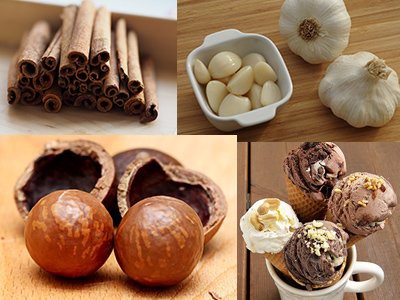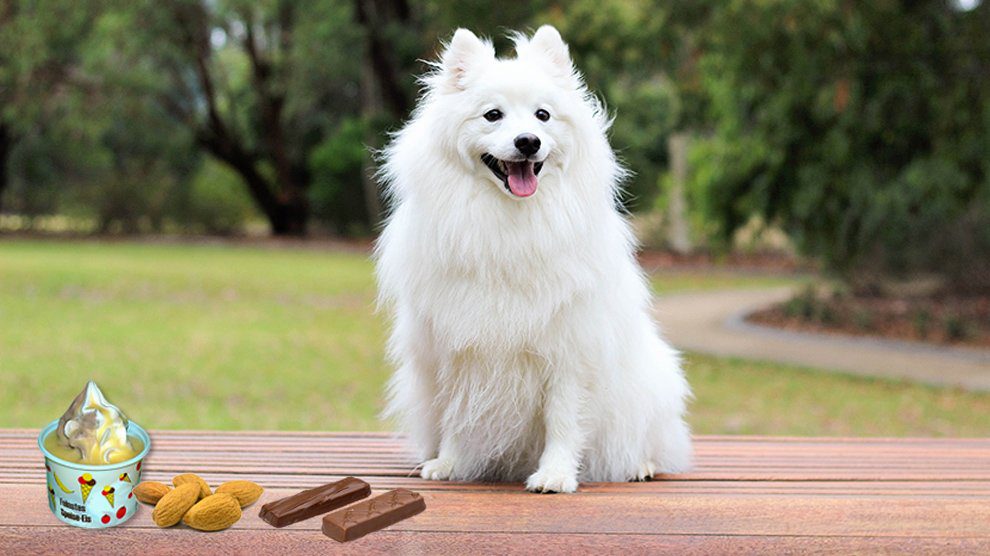Rating: 5.00/5 (2 votes)
The list of foods bad for dogs includes salty snack foods, yeast dough, xylitol, chives, onions, garlic, dairy and milk items to name a few. Are you aware that excessive amount of salt produces more thirst and urination?
Things You Shouldn’t Feed Your Dog
- Macadamia nuts – Definitely no. Being part of the Proteaceae group, they can cause damage to the nervous system, lethargy, walking trouble, rise in body temperature, and vomiting. So avoid it at any cost.
- Ice cream – Canines like dogs generally do not take lightly to lactose and frozen yoghurts are a better choice. Other alternatives are pineapples, apples, raspberries, and strawberries as a treat to your dog.
- Garlic – Like garlic, chives, leeks, and onions, it more toxic because in the Allium plants. The side- effects of garlic are collapsing, weakness, heart rate problems, and sometimes even anaemia.
- Cinnamon – Cinnamon oils and cinnamon can cause can affect the dog’s mouth and make them sick and uncomfortable. It can cause liver disease, decreased heart rate, vomiting, and diarrhoea. Even inhaled in the form of powder, cinnamon can create choking, coughing, and breathing difficulties.

- Chocolate – They contains a toxic known as methylxanthines that can affect their metabolic process. A little piece can also cause vomiting, diarrhoea, irregular heartbeat, seizures etc. So, avoiding them is the only option.
- Almonds – Almonds may not be toxic like macadamia nuts, walnuts, and pecans but they have the capacity to tear down the windpipe and salted almonds can increase the water content in their body, thereby affects the dog’s heart.
- Alcohol – Indeed, alcoholic drinks and food products containing alcohol are known to cause coma, abnormal blood acidity, tremors, difficulty while breathing, and depression. Under no circumstances, avoid feeding your pet with alcohol and if our fear alcohol intoxication, contact your vet immediately.
- Caffeine – In fact, caffeine is toxic for dogs. So, kindly avoid feeding your dog with tea, coffee, and beans. Not to mention, caffeine is silently present in painkiller medications and also in cold medicines.
Overall, in case, if your dog has consumed caffeine or any caffeine related foods in excess and exhibits signs of discomfort, take him to a vet for further investigation.











